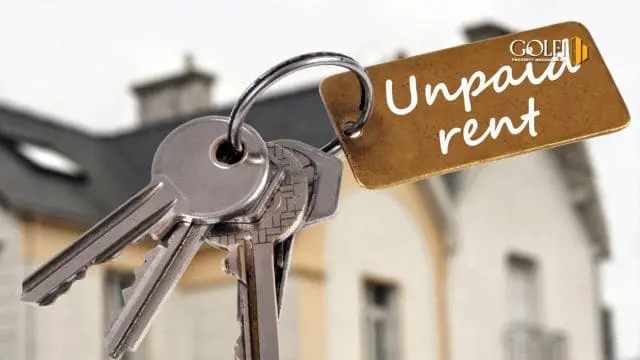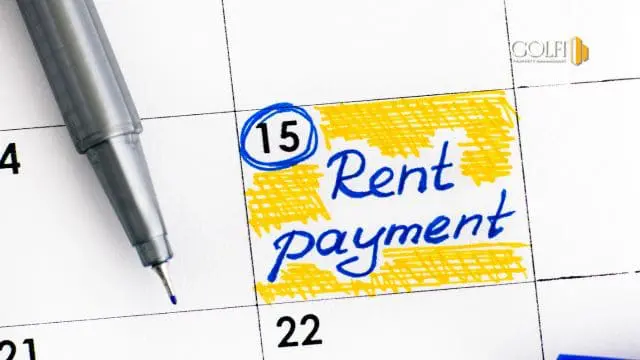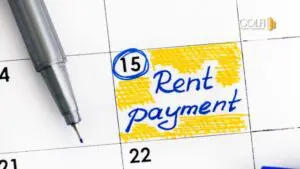How to Collect Unpaid Rent After a Tenant Moves Out in Ontario
Are you a landlord and want to know how to collect unpaid rent after a tenant moves out in Ontario? When rent goes unpaid and a tenant moves out, the situation quickly becomes stressful for landlords. We understand how frustrating it feels when someone leaves without paying what they owe. Every dollar counts, especially when mortgage payments, repairs, and property expenses continue. In Ontario, there are clear legal steps that help landlords collect unpaid rent, even after the tenant leaves the property. In this guide, we break down how to collect unpaid rent after a tenant moves out in Ontario, using practical steps, simple language, and information from the Landlord and Tenant Board (LTB) and government resources.
A recent study from the Canadian Rental Housing Index found that more than 32% of Ontario tenants spend over one-third of their income on rent, which increases the risk of late or unpaid payments. Because of that, many landlords eventually face a tenant who leaves without settling rent. Fortunately, Ontario law gives landlords tools to recover the money properly, fairly, and legally.
Let’s jump in.
Experience hassle-free property management with GOLFI Property Management’s services.
What Happens When a Tenant Moves Out Without Paying Rent?
Once a tenant moves out, the situation changes from a rental dispute to a debt-collection matter. Even though the tenancy is over, the unpaid rent does not disappear. Landlords still have the legal right to recover outstanding rent, utility charges, and any damages.
However, there is an important rule:
We can’t apply to the LTB after the tenant has already moved out. Instead, unpaid rent must be collected through Small Claims Court or a collection agency.
Step-by-Step: How to Collect Unpaid Rent After Tenant Moves Out in Ontario
1. Gather Evidence and Tenant Information
Before starting the collection process, we gather:
-
The lease or rental agreement
-
Payment records or bank statements
-
Move-out inspection photos
-
Emails, texts, or written notices about overdue rent
-
The tenant’s forwarding address, if known
Strong records make the claim easier to win, especially in Small Claims Court.
2. Send a Written Demand for Payment
We send a written notice reminding the former tenant of the balance owing. This isn’t required, but it shows we tried to resolve the issue before escalating.
A clear payment request includes:
-
Total amount owed
-
Deadline for payment
-
Our contact information
-
Bank or e-transfer details for repayment
Surprisingly, many tenants do pay after receiving a formal demand, because they want to avoid court or a collection agency.
3. File a Claim in Small Claims Court
This is the main legal method used in Ontario to collect unpaid rent after a tenant leaves. Landlords can sue for:
-
Unpaid rent
-
Utilities or unpaid bills
-
Damages to the unit
-
Costs related to debt collection
Small Claims Court handles claims up to $35,000, which covers most rental debt.
The court can order a wage garnishment, a payment plan, or money judgment that follows the former tenant until the debt is paid. If they change jobs or move, the judgment still applies.
4. Use a Collection Agency
If we prefer not to go through court, a licensed collection agency can pursue the unpaid rent on our behalf. Agencies contact the tenant, trace their location, report the debt to credit bureaus, and negotiate payment.
This can affect the tenant’s credit score for years, which motivates many former tenants to settle the debt.
5. Recover Payment from the Tenant’s Guarantor or Co-Signer
If the lease included a guarantor, they are legally responsible for covering unpaid rent after the tenant leaves. In that case, the collection process is much faster because guarantors usually pay to avoid legal action.
Can Landlords Deduct the Debt from the Tenant’s Deposit?
In Ontario, deposits are only allowed for last-month’s rent, not security deposits. This means we can apply the last-month’s rent deposit toward unpaid rent, but not toward damages or other costs. Everything else must be collected separately.
What if the Tenant Left the Province?
Many landlords worry about this scenario. Even if the former tenant moved to another province, the judgment from Ontario Small Claims Court can still follow them. Courts in other provinces recognize and enforce Ontario judgments, so former tenants cannot escape the debt simply by moving.
How Long Do Landlords Have to Collect Unpaid Rent?
Ontario gives landlords up to two years from the date the unpaid rent became overdue to start a claim in Small Claims Court. That gives us enough time to gather records, get legal help, or try settling with the tenant directly.
How Golfi Property Management Helps Landlords Collect Unpaid Rent
At Golfi Property Management, we manage rental properties across Hamilton, Halton, Niagara, and Brantford, and we deal with unpaid rent disputes regularly. Because we handle tenant screening, rent collection, inspections, and legal issues, we help landlords avoid these problems before they happen.
When unpaid rent occurs, we assist with:
-
Gathering documentation
-
Communicating with former tenants
-
Legal processes and Small Claims filing
-
Working with collection agencies
-
Preventing future rental losses through stronger screening
Our goal is to protect landlords from financial loss while keeping everything lawful and fair.
Tips for Landlords to Prevent Unpaid Rent in the Future
Really, many rentals have a property management company like us, handling everything in situation even like these, bad tenants can happen, and so do evictions , both are common it happen quite more often then you think.
To reduce the chance of unpaid rent, we suggest you to follow these steps with every tenant:
-
Strong tenant screening
-
Reference and employment verification
-
Prompt rent reminders
-
Clear communication and written agreements
-
Regular inspections
-
Online rent payment systems
A well-managed property dramatically lowers rent issues and keeps good tenants long-term.
Conclusion
Unpaid rent can feel overwhelming, but landlords in Ontario have strong legal options to recover debt even after the tenant moves out. With documentation, written notices, Small Claims Court, or a collection agency, it is possible to collect unpaid rent legally and fairly. And with proper property management, the chance of future rent loss becomes much smaller.
FAQs
1. Can a landlord collect unpaid rent after a tenant moves out in Ontario?
Yes. Even after the tenant leaves, landlords can collect unpaid rent through Small Claims Court or a licensed collection agency.
2. Can a landlord take money from the security deposit for unpaid rent?
Ontario does not allow security deposits. Only last-month’s rent deposits exist, and those can be applied to unpaid rent only.
3. What is the easiest way to collect unpaid rent from a former tenant?
The quickest method is usually sending a written demand and then filing a Small Claims Court application if they refuse to pay.
4. Can collection agencies recover unpaid rent after move-out?
Yes. Licensed collection agencies can contact tenants, report debt to credit bureaus, trace their location, and negotiate repayment.
5. How much unpaid rent can landlords claim?
Small Claims Court covers up to $35,000, including unpaid rent, utilities, and damages.


